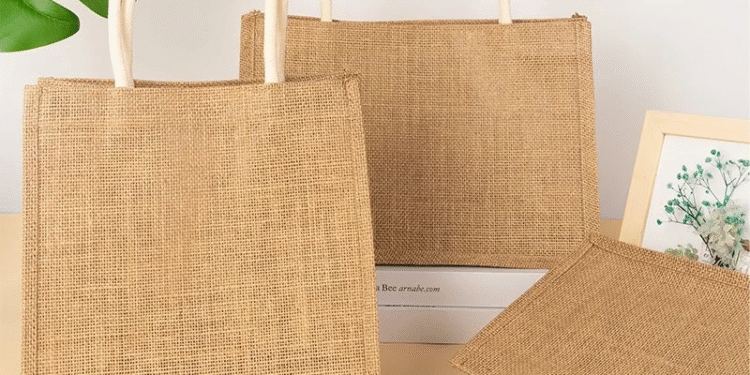In a world increasingly attuned to the importance of sustainability, consumers are actively seeking products that align with environmentally friendly values. One such product that has gained significant attention is the jute bags, offering a perfect blend of style and sustainability.
What Are Jute Bags?
Jute bags are crafted from the fibres of the jute plant, which is primarily grown in tropical regions like India and Bangladesh. These fibres are spun into strong threads that are woven to create a durable and reusable bag that stands the test of time.
The Environmental Benefits of Jute Bags
Jute is an incredibly eco-friendly material for several reasons. First and foremost, the jute plant can be grown with minimal pesticide or fertiliser input, which significantly reduces the environmental impact compared to other crops. Additionally, jute fibres are biodegradable, meaning that even when they are disposed of, they decompose harmlessly without leaving pollution behind.
Moreover, jute plants have a high carbon dioxide assimilation rate, which means they help to absorb carbon dioxide from the atmosphere. This contributes to reducing the greenhouse effect and mitigating climate change.
Versatility Meets Style
Aside from their eco-credentials, jute bags are also highly versatile and stylish. They are available in a myriad of colours, designs, and sizes, making them suitable for any event or outing, from casual shopping trips to formal events. Their natural texture adds a rustic yet chic touch to any outfit.
Durability and Practical Use
When it comes to durability, jute bags excel. Unlike single-use plastic bags, jute bags can handle heavier loads, making them ideal for grocery shopping or carrying heavy items regularly. They maintain their shape and strength over time, making them a practical choice for repeated use.
Cost-Effectiveness in the Long Run
Although jute bags can have a higher initial cost compared to plastic bags, their durability and reusability mean they are cost-effective in the long run. By investing in jute bags, consumers save money by not needing to repeatedly purchase disposable bags.
Promoting Ethical Practices
The production of jute bags often supports ethical labour practices. Many manufacturers work closely with cooperatives and artisans who ensure fair trading conditions, thus fostering sustainable communities and improving quality of life for farmers and workers in developing regions.
Perfect for Branding and Customisation
For businesses, jute bags also offer a perfect avenue for branding and customisation. Their surfaces can be easily printed with logos and messages, making them ideal as promotional products or as customised gifts that reinforce a brand’s commitment to sustainability.
A Global Phenomenon
With increasing awareness around eco-friendly products, jute bags have become a global phenomenon. Countries across the world are tapping into their benefits, resulting in a steady demand for this sustainable product.
A Wise Swap for Plastic
The harm caused by plastic waste is well documented, with millions of tonnes polluting oceans and landscapes. Switching to jute bags can be a simple yet significant step towards reducing plastic waste and its detrimental effects on marine life and ecosystems.
Jute Bags in Australia
In Australia, the popularity of jute bags is on the rise as individuals and businesses alike are choosing more sustainable options. With local suppliers like Claytons Australia providing high-quality jute bags, it has never been easier to make an eco-friendly choice.
Conclusion
The benefits of jute bags extend beyond their obvious environmental advantages to include factors such as durability, style, and ethical production. Embracing jute bags is not merely a decision for today, but an investment in a healthier planet for future generations. Opting for jute is making a statement that style and sustainability can coexist harmoniously.













